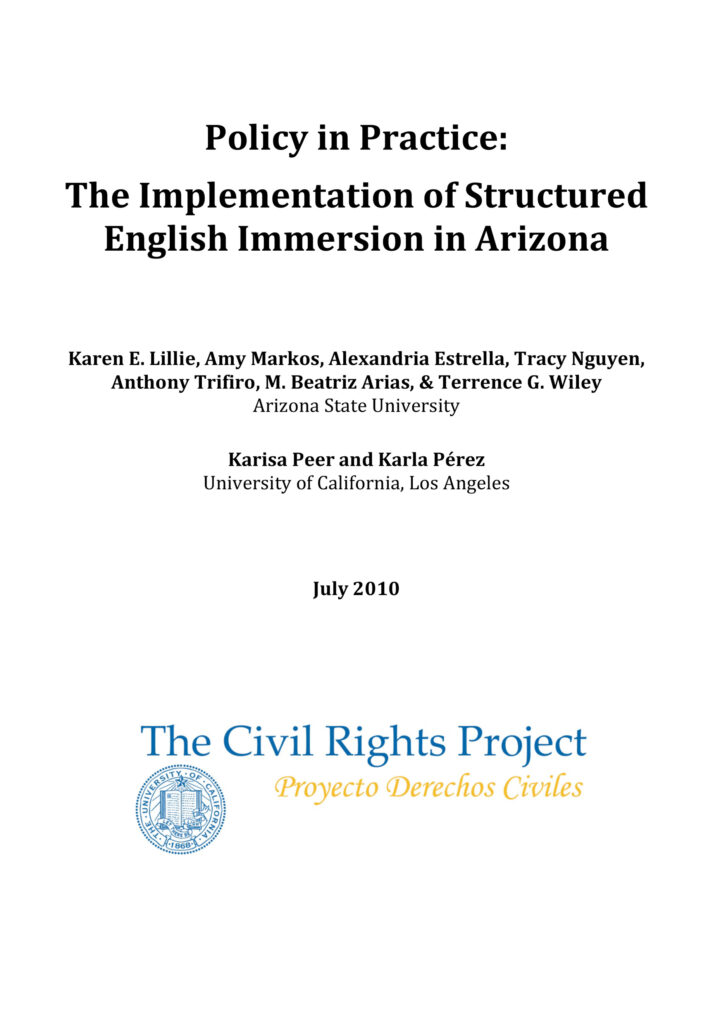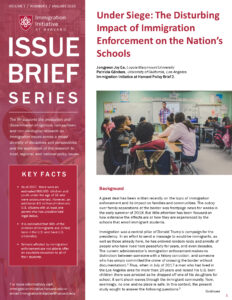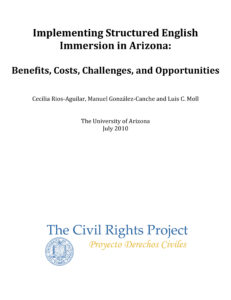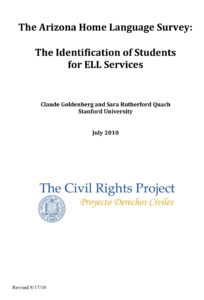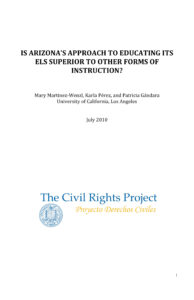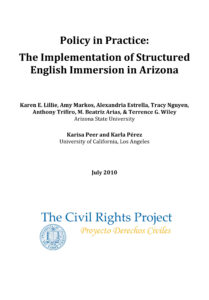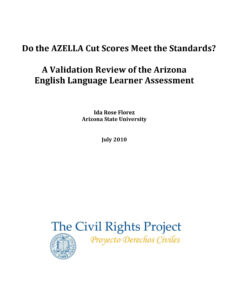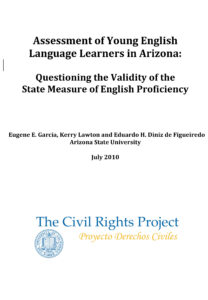This is one of nine papers of the Arizona Educational Equity Project: 21 senior scholars and advanced graduate students from four major research universities joined together, under the aegis of the Civil Rights Project at UCLA, to produce the studies on the condition of English learner students in Arizona.
Abstract:
This study examines the implementation and organization of the state mandated curriculum in the 4-hour SEI block in 18 K-12 classrooms in 5 different districts. We focus on the effects of grouping by language proficiency, the delivery of the structure-based ESL curriculum, the provision of resources and limiting of access to grade-level curriculum, and problems of promotion and graduation for ELLs. In each of these areas, the implementation of the SEI 4- hour block raises concerns with regard to equal educational opportunity and access to English. Key among the findings of this study are: ELLs are physically, socially, and educationally isolated from their non-ELL peers; they are not exiting the program in one year, raising serious questions about the time these students must remain in these segregated settings; reclassification rates are a poor indicator of success in mainstream classrooms; and the four-hour model places ELLs at a severe disadvantage for high school graduation. The only means for these students to graduate with their peers appears to be through after school and summer school programs that either did not exist or had been cut.
For more information on the series, view the Arizona Educational Equity Project Overview.
The Arizona Educational Equity Project grew from the class action lawsuit of Horne v. Flores, which was initially brought against the state of Arizona in 1992 on behalf of English language learners (ELLs) there. The case reached the U.S. Supreme Court, which issued a ruling on June 25, 2009, establishing new legal standards for the EEOA but also returning the case to the Federal District Court in Arizona, to examine Arizona’s instructional policies for ELLs. The issues argued in the Arizona court had important implications for the educational rights of the tenth of U.S. students classified as ELL and for the federal law that protects them. The challenge to the research community was to provide the best possible information on how ELL students were faring under current Arizona educational policies. The Civil Rights Project spearheaded the Arizona Educational Equity Project to generate the most up-to-date research on the equality of educational opportunity for English learners.
In compliance with the UC Open Access Policy, this report has been made available on eScholarship:
